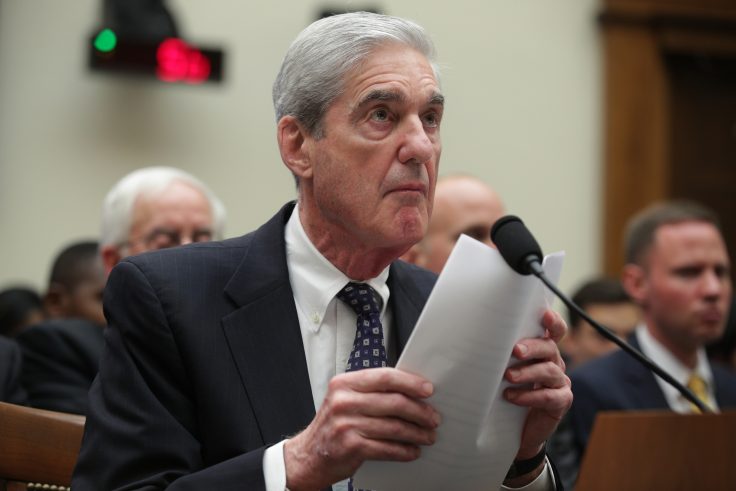The Trump administration on Thursday asked the Supreme Court to delay transmission of secret grand jury materials from former special counsel Robert Mueller's investigation to House Democrats.
The request follows a March decision from the U.S. Court of Appeals for the D.C. Circuit, which said Congress can access the materials under a rule allowing disclosure "in connection with a judicial proceeding," meaning an impeachment trial in this instance. Democrats have left open the possibility of a second impeachment push depending on the contents of the Mueller files.
President Donald Trump outright refused to cooperate with congressional requests for information. Speaking to reporters in April 2019, a defiant Trump promised his administration would be "fighting all subpoenas." The D.C. Circuit said the administration's stonewalling made the House Judiciary Committee's need for the grand jury materials "especially compelling."
Thursday's request, called a stay application, is one of several matters on the Court's docket involving investigations of President Trump. By summer, the justices will also decide whether subpoenas for the president's financial information from House Democrats and a Manhattan prosecutor may be enforced. The cases pose a danger to the president's reelection prospects, as new and potentially damaging information might appear in the dog days of the campaign.
Grand jury materials, including exhibits and transcripts of testimony, are generally kept secret. Files from the Mueller grand jury proceedings are currently housed in the Department of Justice.
Unless the justices act, the administration will have to release those materials on Monday, "which would irrevocably lift their secrecy and possibly frustrate the government's ability to seek further review," solicitor general Noel Francisco told the justices.
House Democrats do not oppose pushing the Monday deadline back one week while the justices consider the request, the application says.
The House Judiciary Committee said in an April court filing that it is prepared to review and act upon the Mueller grand jury materials despite the coronavirus pandemic.
"The current pandemic notwithstanding, the committee's investigation is not 'dormant,'" the filing reads. "The committee continues to exercise its investigative and oversight responsibilities; its staff are ready and able to review the requested grand jury materials as soon as they are provided by DOJ; and the committee remains able to convene formal hearings to further its investigation."
Francisco told the justices that the judicial proceeding exception to grand jury secrecy should be interpreted narrowly and does not cover impeachment trials.
"The ordinary meaning of 'judicial proceeding' is a proceeding before a court—not an impeachment trial before elected legislators," he wrote.
He also argued the decision disrupts the balance of power between Congress and the courts. Francisco anticipated that judges in future cases might have to "scrutinize specific legal theories of impeachment" to determine whether or not Congress has a compelling need for sealed grand jury materials.
It's also doubtful, he noted, that a judge could impose rules on lawmakers regarding "protective limitations on the use of disclosed material." Grand jury information is usually disclosed subject to certain conditions.
The case is No. 19A1035 Department of Justice v. Committee on the Judiciary.
Department of Justice v. Ho... by Washington Free Beacon on Scribd
